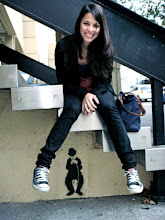Given the fact that Duck Soup was one of the first ‘talky’
films, we can see an incredible step back in terms of camera, acting, and story
telling. First of all, the camera is extremely static: most shots are long and
wide. Acting, on the other hand, is extremely expository and extravagant. The
actors and screenwriters felt the need to talk through and explain every bit of
emotion instead of showing it. Nevertheless, it was interesting that, in the
beginning of the film, the main character talks directly into the camera. Not
only he brakes the forth wall by talking directly to the audience, but he also
makes the camera visible. We are suddenly aware that there is a recording
instrument in the living room.
In terms of sound, the Four Marx
Brothers, like Chaplin, played with the use of accents and modes of speech to differentiate
society’s stratus and ridicule the upper classes. The rich people are the only ones
who burst into absurd sequences of musicals when needing to express a
sentiment. It seems like the Four Marx Brothers tried to use every single
excuse to integrate unnecessary sounds to the film. For example, there are
trumpets that follow the main character which are unmotivated. This film is a
great example to showcase the beauty behind controlling and restricting the
instruments our disposal. The fact that they created scenes and characters only
because of their sonic qualities, do not have a rooted enough motivation. Therefore,
these scenes become extremely annoying and unwatchable.


No comments:
Post a Comment